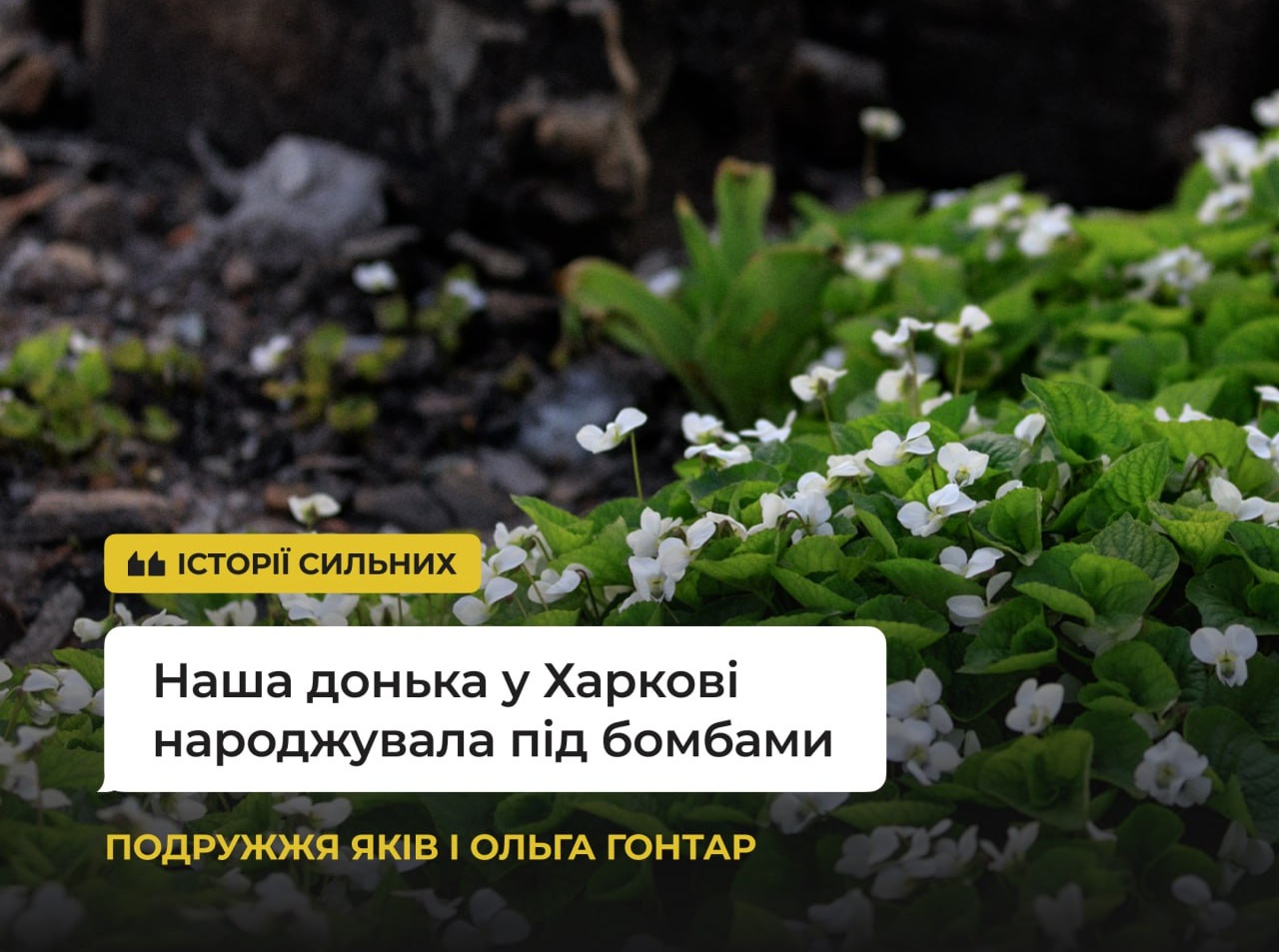We walked, did not look back

Spouse
"My husband and I literally fled on foot from our native border village in the Dergachiv district of the Kharkiv region, where a column of tanks in the number of fifty-four units entered. It was the eighth day of the war. We walked and did not look back at our house, the mutilated fence, electric poles, demolished by tanks..." - this is how Olga Stepanivna Gontar begins her story for "History of the Strong". She and her husband are pensioners, refugees from the Kharkiv region, parents of seven children, grandparents of nine grandchildren and twelve granddaughters.
This is very scary
"The Russians on tanks shot at everything that moved... fellow villagers who dared to ask the invaders something, got a bullet instead of an answer," the woman recalls.
Elderly people with only documents and a minimum of things came to the station, which was no longer there. "The blown-up railway tracks were sticking out like the hands of hideous iron monsters. It's very scary. It feels like you're inside a horror movie - and you don't know how to get out of there into normal reality," Olga Stepanivna recalls.
The daughter gave birth to a girl
Already abroad, they received the news: the daughter gave birth to a girl. "The windows flew out in the delivery room, but the doctor did not leave the woman in labor, he took delivery as best he could in those inhumane conditions."
Olha Stepanivna remembers how difficult it was to travel by train and cross the border, with what care the refugees were taken care of at the Polish border and in the Otvotsky District Center, where the couple was accommodated. And also tells how the Poles rallied and organized systematic assistance to Ukrainians who found refuge in their country.